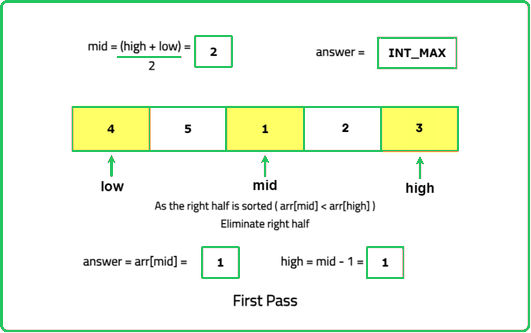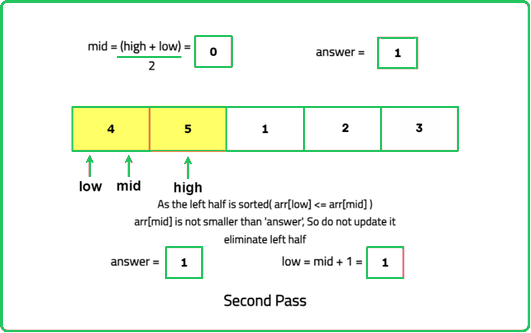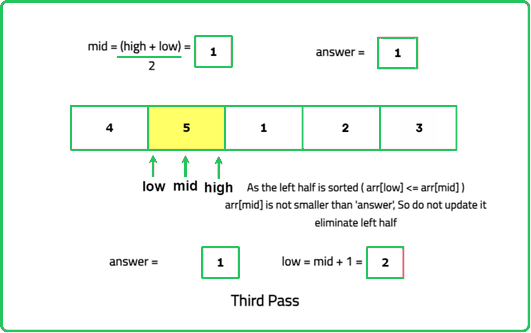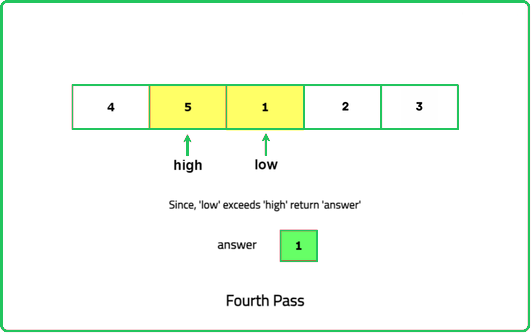Find minimum in Rotated Sorted Array
Binary Search
Logic Building
Easy
Given an integer array nums of size N, sorted in ascending order with distinct values, and then rotated an unknown number of times (between 1 and N), find the minimum element in the array.
Examples:
Input : nums = [4, 5, 6, 7, 0, 1, 2, 3]
Output: 0
Explanation: Here, the element 0 is the minimum element in the array.
Input : nums = [3, 4, 5, 1, 2]
Output: 1
Explanation:Here, the element 1 is the minimum element in the array.
Input : nums = [4, 5, 6, 7, -7, 1, 2, 3]
Constraints
- n == nums.length
- 1 <= n <= 104
- -104 <= nums[i] <= 104
- All the integers of nums are unique.
- nums is sorted and rotated between 1 and n times.
Hints
- A rotated sorted array contains two sorted segments, with the rotation causing a discontinuity. The smallest element (minimum) is the pivot point where the rotation occurs. The minimum element is the only one smaller than its previous element (except at index 0, where it is compared to the last element).
- "Compare the middle element (nums[mid]) with the rightmost element (nums[high]): If nums[mid] > nums[high], the minimum lies in the right half (low = mid + 1). If nums[mid] <= nums[high], the minimum lies in the left half (high = mid)."
Company Tags
Ernst & Young
Nutanix
Red Hat
Optum
HashiCorp
Philips Healthcare
DoorDash
Target
Ubisoft
Zomato
Airbnb
Reddit
KPMG
Morgan Stanley
OYO Rooms
Zynga
Snowflake
Databricks
IBM
Uber
Siemens Healthineers
Splunk
Shopify
American Express
Twilio
TCS
Cognizant
Accenture
Infosys
Capgemini
Wipro



